#code napoléon
Text

#napoleonic code#code napoléon#napoleon#napoléon#napoleon bonaparte#napoléon bonaparte#napoleonic#france#french#history#andrew best leloir#art#illustration#ed wattier#europe#european#eagle#eagles#soldier#grenadier#weapons#cannon#cannons#standard#flag
42 notes
·
View notes
Text
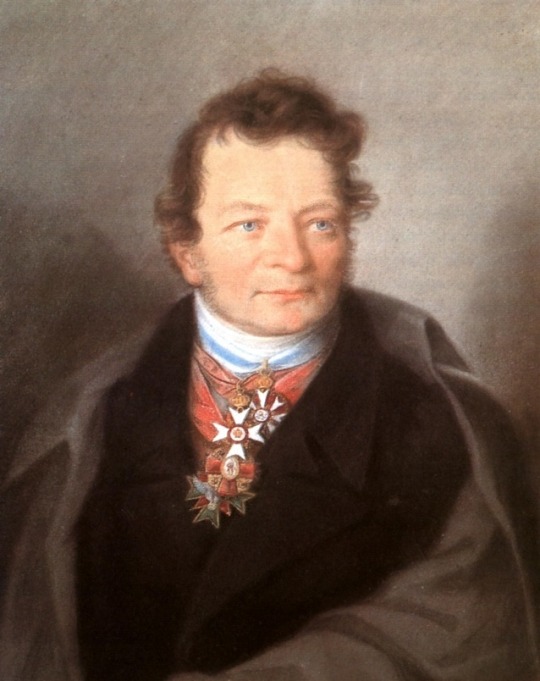
Paul Johann Anselm von Feuerbach, a German legal scholar.
Probably the best codification work of the Rhine Confederation period was the draft of a “General Civil Code for the Kingdom of Bavaria” from 1808-09, which was essentially based on the suggestions of Paul Johann Anselm von Feuerbach. By starting codification work, the Bavarian King Maximilian IV wanted to give in to Napoleon’s urging to introduce his code in Bavaria as well. In a report for the Ministry of Justice in 1808 “on the manner of introducing the Code Napoléon in a German country”, Feuerbach highlighted the main ideas of the Code Napoléon: freedom of the person; legal equality of subjects; equality of laws for all citizens of the state; freedom of property, as well as autonomy and independence of the state from the church in all civil matters. For him, the Napoleonic Code was a result of the French Revolution: “The purpose of French legislation was, on the one hand, to bring the Revolution to a complete end, and on the other, to perpetuate the beneficial results of the Revolution”.
Source: Werner Schubert, Der Code civil (Code Napoléon) in Deutschland und das Reichsgericht
#Werner Schubert#Schubert#Paul Johann Anselm von Feuerbach#Feuerbach#napoleonic era#code napoléon#napoleonic code#napoleonic#first french empire#Bavaria#Germany#Napoleon in Germany#napoleonic reforms#legal reforms#Napoleon the reformer#french revolution#frev#napoleon bonaparte#napoleon#19th century#history#Deutschland
7 notes
·
View notes
Text
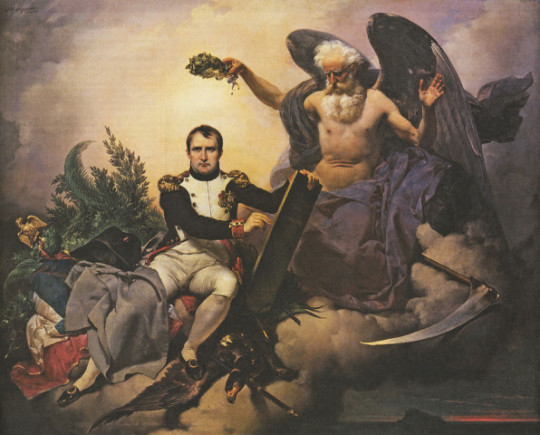

1804 – Code Napoléon がフランスの民法として採用されました。
0 notes
Photo
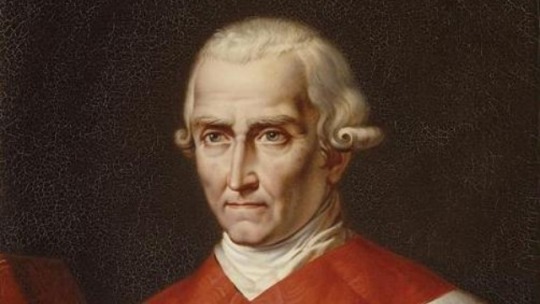
22 novembre 1824 : mort de Jacques de Maleville, l’un des rédacteurs du Code civil ➽ http://bit.ly/Jacques-de-Maleville Peu d’hommes publics du XIXe siècle suivirent aussi fidèlement que Jacques de Maleville cette devise de Montaigne, qui devrait être celle de tous les magistrats et de tous les législateurs : "Servare modum" (Garder la mesure)
#CeJourLà#22Novembre#Maleville#Jurisconsulte#Loi#Code#civil#Napoléon#histoire#france#history#passé#past#français#french#news#événement#newsfromthepast
8 notes
·
View notes
Text
Answering the question: Was a Valvert relationship possible to maintain in canon-era France without legal consequences? The answer is yes and no. It depends.
In contrast to Britain, the German states, and the Habsburg Empire, consensual sexual acts between adult men in France were legally tolerated thanks to the Code Napoléon. Since 1805, as long as men confined their sexual relations to private environments, it was not a criminal offence. However, local authorities made sure to criminalize sexual acts performed in public places, as well as male prostitution. (Because of this partly tolerant attitude towards homosexual relations, France was a suitable place of exile for men like Oscar Wilde.)
So, if your Valjean and Javert do whatever they do behind closed doors at home (and probably even in Madeleine’s office), they can do so without any legal consequences. What is even better, Javert’s feelings won’t be hurt, as he is not transgressing the lawr. But as soon as they move into public territory, they are in trouble, and Javert automatically becomes a criminal—I am sure he won’t like it.
47 notes
·
View notes
Text


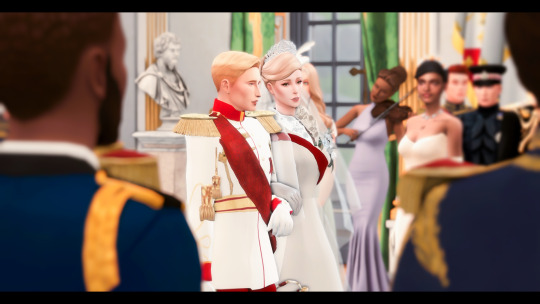
Charlotte (whispers): Who let in this sour-faced, Thornolian Barbie?
Napoléon V: Chérie, please
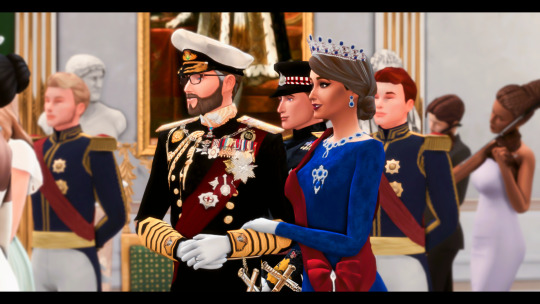




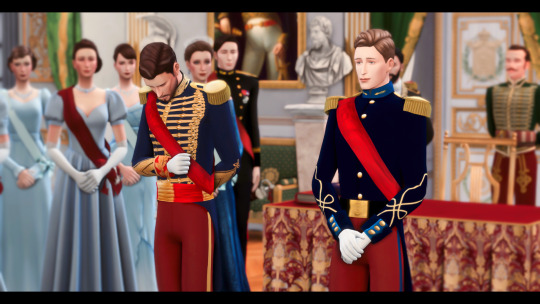
Henri: Your Majesty, Mademoiselle. I, Henri de Francesim, represent the French Nation on this day, and will register your civil marriage.

Henri: According to the Code Napoléon, the source of all our laws, and the Imperial Constitution, spouses owe each other mutual respect, fidelity, help and assistance.

Henri: Together, the spouses ensure the moral and material direction of the family. They provide for the children's education and prepare for their future.

Henri: If the matrimonial agreements do not regulate the contribution of the spouses to the expenses of the marriage, they contribute in proportion to their respective means.

Henri : Finally, the spouses are mutually bound by a cohabitation agreement.

Henri : Do you, Mademoiselle Charlotte de Rochechouart de Mortemart, take for your husband His Imperial Majesty Emperor Napoléon V, Louis Napoléon Simparte?

Charlotte: Yes, I do

Henri: Sire, do you take Mademoiselle Charlotte to be your wife?

Napoléon V: Yes, I do

Henri: Then, by the powers vested in me, I now pronounce you man and wife. Your Majesty, you may kiss the bride.


⚜ Le Cabinet Noir | Palais des Tuileries, 20 Prairial An 230
Beginning ▬ Previous ▬ Next
Emperor Napoléon V marries Charlotte de Rochechouart de Mortemart in the Tuileries. She became Empress Charlotte of the French.
(Thanks to @nexility-sims @officalroyalsofpierreland, @theroyalthornoliachronicles, and @funkyllama for your participation!)
⚜ Traduction française
L'Empereur Napoléon V épouse civilement Charlotte de Rochechouart de Mortemart aux Tuileries. Elle devient l'Impératrice Charlotte des Français.
Charlotte (chuchote) : Qui a invité cette Barbie thornolienne grincheuse ?
Napoléon V : Chérie, s'il vous plaît
Henri: Votre Majesté, Mademoiselle. Moi, Henri de Francesim, représente en ce jour la Nation française, et vais procéder à l'enregistrement de votre mariage civil. Selon le Code Napoléon, la source de toutes nos lois, et selon la Constitution impériale, les époux se doivent mutuellement respect, fidélité, secours et assistance. Les époux assurent ensemble la direction morale et matérielle de la famille. Ils pourvoient à l’éducation des enfants et préparent leur avenir. Si les conventions matrimoniales ne règlent pas la contribution des époux aux charges du mariage, ils y contribuent à proportion de leurs facultés respectives. Enfin, les époux s’obligent mutuellement à une communauté de vie. Mademoiselle Charlotte de Rochechouart de Mortemart, voulez-vous prendre pour époux, Sa Majesté l'Empereur Napoléon V, Louis Napoléon Simparte ?
Charlotte : Oui, je le veux.
Henri : Sire, voulez-vous prendre pour épouse, Mademoiselle Charlotte ?
Napoléon V : Oui, je le veux.
Henri : Alors, par les pouvoirs qui me sont conférés, je vous déclare mari et femme. Mon neveu, vous pouvez embrasser la mariée.
#simparte#ts4#ts4 royal#royal simblr#sims 4 royal#sim : louis#sims 4 fr#sims 4#sim : charlotte#ts4 royal simblr#sims 4 story#weddingV#sim : henri#sim : marie joséphine#sim : hortense#sim : casimir#sim : philippevictor#le cabinet noir#tuileries#sims 4 royal story#sims 4 royalty#ts4 royalty#ts4 royal family#ts4 royal legacy#ts4 royals#sim : eleanor
73 notes
·
View notes
Text
THIS DAY IN GAY HISTORY
based on: The White Crane Institute's 'Gay Wisdom', Gay Birthdays, Gay For Today, Famous GLBT, glbt-Gay Encylopedia, Today in Gay History, Wikipedia, and more … March 21



1804 – The Code Napoléon is introduced in France, Belgium, Luxembourg, and Monaco, maintaining the "hands-off" attitude of the government toward private, consensual sexual relations.


1901 – Gavin Arthur (d.1972) an astrologer and occultist, was born Chester Alan Arthur III, the grandson and namesake of the 21st President of the United States. He grew up in wealth, but did not pursue a career in the professions, choosing instead to join the Merchant Marines. He later panned for gold and sold newspapers.
In the 1930s he travelled widely and came to know many of the counterculture elite of his day. Among his acquaintances were pioneer sexologists Edward Carpenter, Havelock Ellis and Alfred Kinsey. He was unashamedly gay and a forerunner of gay activism. He helped Kinsey with his groundbreaking research into male sexuality.
In the 1950s he settled in San Francisco and devoted his time to astrology. He began to move in the alternative spirituality and sexuality community that first became known for its identification with beat Zen, and he became well-known as an astrological counsellor. He began to develop a perspective on astrology that, contrary to the mainstream of astrological writing, took account of homosexual and bisexual gender preferences. His ruminations culminated in 1966 with his major writing, The Circle of Sex.
Drawing on his reading of gay writers, Arthur concluded that sexuality needs to be separated from the single need to procreate.


1903 – Vadim Kozin (d.1994) was a Russian tenor, and an openly homosexual man until 1934 when male homosexuality became a crime in USSR.
Vadim Alekseyevich Kozin was born the son of a merchant in Saint Petersburg. His mother was a gypsy and often sang in the local gypsy choir. Their house was frequently full of musicians, exposing Vadim to tradition from an early age.
He began to sing professionally in the 1920s, and gained success almost immediately. In the 1930s he moved to Moscow and began playing with the accompanist David Ashkenazi.
During World War II he served in the entertainment brigade and sang for Soviet troops.
In 1944, shortly before the birthday of Josef Stalin, the police chief Lavrenty Beria called him up and asked why his songs didn't involve Stalin. Kozin famously replied that songs about Stalin were not suited for tenor voices. In late 1944, Kozin was sentenced to five years in jail as part of the repression campaign against prominent Soviet performers and was sent to the Magadan labour camps because of his alleged homosexuality.
He was initially released in 1950 and was able to return to his singing career. Though released once again several years later, he was never officially rehabilitated and remained in exile in Magadan until his death. Speaking to journalists in 1982, he explained how he had been forced to tour the Kolyma camps: "The Politburo formed brigades which would, under surveillance, go on tours of the concentration camps and perform for the prisoners and the guards, including those of the highest rank."
In 1993, being interviewed by Theo Uittenbogaard in the TV documentary Gold – Lost in Siberia, he recalled how he was released from exile temporarily and flown into Yalta for a few hours, because Winston Churchill, unaware of Kozin's forced exile, had asked Stalin for the famous singer Vadim Kozin to perform, during a break in the Yalta Conference, held February 4–11, 1945.
His prison sentence deeply traumatized Kozin, leading to the cessation of his singing career. He even began burning his own records, to the point where his friends were forced to hide their own copies from him in order to preserve them. The Soviet government never officially rehabilitated him and his 90th birthday was celebrated in private among friends in Magadan. He died at the age of 91 in 1994.

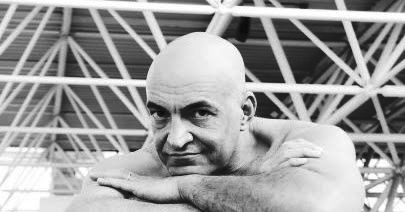
1961 – Greg Herren is an American writer and editor, who publishes work in a variety of genres, including mystery novels, young adult literature and erotica. He publishes work both as Greg Herren and under the pseudonym Todd Gregory.
New Orleans-based writer and journalist, Greg Herren has written extensively about the homosexual lifestyle, both in fiction and nonfiction. His work has appeared in a variety of periodicals and anthologies, and his fiction includes an array of horror stories and mysteries, all featuring homosexual characters.
His novel Murder in the Rue Chartres won a Lambda Literary Award in the Gay Mystery category at the 2008 Lambda Literary Awards, and his anthology Love, Bourbon Street: Reflections of New Orleans, co-edited with Paul J. Willis, won in the anthologies category at the 2007 Lambda Literary Awards.
He was also nominated in the mystery category in 2003 for Murder in the Rue Dauphine, in 2004 for Bourbon Street Blues, in 2005 for Jackson Square Jazz, in 2007 for Mardi Gras Mambo, in 2010 for Murder in the Garden District and in 2011 for Vieux Carré Voodoo, in the anthologies category in 2005 for Shadows of the Night: Queer Tales of the Uncanny and Unusual and in the science fiction, fantasy and horror category in 2013 for the anthology Night Shadows: Queer Horror, co-edited with J.M. Redmann. As Todd Gregory, he was also nominated in the Gay Erotica category in 2010 for the anthology Rough Trade: Dangerous Gay Erotica and in 2013 for the anthology Raising Hell: Demonic Gay Erotica.
Openly gay, Herren lives in New Orleans, Louisiana, where he also works as an HIV/AIDS counselor and educator. He was also a co-founder of the Saints and Sinners Literary Festival.
While not erotic, Herren's mystery novels feature homosexual characters and cater to that audience. His choices have proven controversial on occasion. In 2005, he was invited to speak to the Gay-Straight Alliance at Manchester High School in Chesterfield County, Virginia. However, the superintendent and the school board later canceled his appearance under pressure from the Virginia Family Policy Network, which had organized an e-mail campaign claiming that Herren wrote gay pornography and would not be an appropriate speaker. Herren commented that only a small portion of his writing has erotic overtones, and that, regardless, he hadn't planned to discuss his sexual orientation during his presentation. He said: "I was planning on talking about being a professional writer.… I was not planning on talking about sex." and was defended by the American Civil Liberties Union.

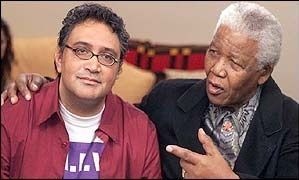
1962 – South African activist Zackie Achmat has been a pivotal figure in his country's response to AIDS. His refusal, from 1999 to 2003, to avail himself of anti-retroviral drugs until they became affordable for the poor brought him recognition from health and human rights advocates worldwide.
In a 1995 autobiographical essay, provocatively entitled "My Childhood as an Adult Molester," he describes the conditions of life for South Africa's "coloureds" during the apartheid era, when he suffered discrimination and poverty. Although of Malaysian extraction, he identified with the country's black population, who were subject to even worse treatment.
The essay also offers a rare portrait of gay male life in the colored community. By age ten, Achmat was aware of his homosexuality. An eager reader, he received a special pass to use a town library ordinarily reserved for whites. However, its restrooms were still off limits. While seeking available facilities, he discovered restroom sex with adult men and took up the life of a "moffie," South African slang for a gay man.
Achmat's political activism began with the 1976 student uprisings against apartheid. He organized youth resistance groups for the African National Congress (ANC) while it was still banned, and he was jailed several times.
In the 1990s apartheid was repealed. The ANC came to power under the charismatic leadership of Nelson Mandela in 1994. Achmat was one of the founders of the National Coalition for Gay and Lesbian Equality in 1994, which advocated for gay rights in the new constitution. In 1996 South Africa became the first nation to include protections against discrimination on the basis of sexual orientation in its Bill of Rights. In 1998 all remaining local sodomy laws were declared unconstitutional.
Achmat co-founded the Treatment Action Campaign (TAC) in 1998 to address the AIDS epidemic. South Africa then had the highest number of AIDS cases in the world, a figure that would eventually grow to over 5 million. To put a human face on the crisis, Achmat publicly announced his own HIV-positive status and vowed not to take anti-retroviral drugs until they were available to all South Africans. As he later told his group, "The majority of people with HIV—they don't have a face, they don't have a political understanding. They're desperate, they're poor, they're alone . . . I can't look them in the eye when I take medicines and I know they're going to die."
Enduring frequent bouts of illness, Achmat spearheaded TAC's civil disobedience campaign to force the government to promote the use of ARVs. TAC and other groups sued the government to provide Nevirapine to curb mother-to-newborn transmission of HIV. TAC won the support of former president Mandela, who met with Achmat and declared him a national hero.
In August 2003, anticipating a victory, Achmat resumed treatment in time to reverse his declining health. In November, South Africa's Ministry of Health finally agreed to a government-funded program to provide ARVs on a wide scale. Although there have been other obstacles to effective treatment for HIV infection in South Africa, TAC has made steady progress
On 5 January 2008, Achmat married his same-sex partner and fellow activist Dalli Weyers at a ceremony in the Cape Town suburb of Lakeside. The ceremony was attended by then Mayor Helen Zille and presided over by Supreme Court of Appeal judge Edwin Cameron. The couple divorced amicably in June 2011

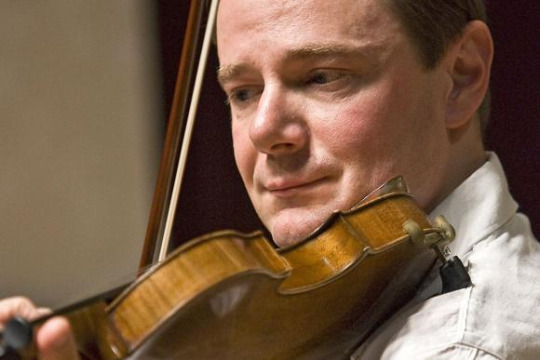
1967 – Philippe Honoré is a French violinist who has been a regular recitalist in France and the United Kingdom. He was appointed Violin Professor at the Royal Academy of Music in London September 2012. He has performed widely in broadcast recitals on French radio and television.
Philippe Honoré divides his busy schedule between solo work, chamber music, as well as leading orchestras. He was a principal player with the Philharmonia Orchestra (from 2005 to 2011). After having received top honours from the Paris Conservatoire and the Royal Academy of Music in London, he was made Lauréat of the Yehudi Menuhin Foundation of France in 1992. He was awarded an Honorary Associateship by the Royal Academy of Music in 2001.
Honoré is a former member of the Vellinger Quartet and a founder member of the Mobius ensemble. As such, he has appeared in some of the most prestigious venues abroad (such as Amsterdam's Concertgebouw) and in the UK (such as the Wigmore Hall and the South Bank in London). He has appeared as a soloist performing Beethoven, Mozart, Bach and Vivaldi concerti, as well as Ravel's Tzigane.
Philippe regularly appears as guest leader with some of the UK's best orchestras. He has made numerous solo and chamber music recordings. His solo violin performances on the Decca album An Equal Music are regularly featured on both Classic FM and Radio 3. The novel of that name by the author Vikram Seth was inspired by and dedicated to him. Vikram Seth and he were at one time lovers in a ten-year relationship.
Philippe's collaboration with the composer Alec Roth over a recent four-year project earned him great critical acclaim. The performances took place at the Salisbury, Chelsea, and The Lichfield Festival. BBC Radio 3 recorded and broadcast these annual concerts, in which, in addition to the world premières of Roth's work, Philippe also played solo Bach and Ysaÿe sonatas. The Times described his account of Roth's solo work in 2007 as “magically played”. A studio recording of Alec Roth's Ponticelli for solo violin, played by Philippe, was released by Signum records in November 2011.


1981 – Brandon Scott Sessoms, best known as B. Scott, born in Franklin, Virginia, is an American television personality, radio show host and internet celebrity who is known for his YouTube videoblogs and website LoveBScott.com. He is also a contributing editor to The Glam Network, and an Ebony Magazine advice columnist.
Scott, who is a gender non-conforming androsexual, has become a popular internet personality through his video blogging and his website, LoveBScott.com. Scott's internet presence has contributed to his ability to interview celebrities such as Mariah Carey, Ne-Yo, Chaka Khan, Aubrey O'Day and Ashanti. Following his Internet-based success, he has appeared in mainstream media, making appearances on The Tyra Banks Show, and shows on Oxygen and BET.
Scott was born to parents of African-American, Irish, Jewish and Meherrin ancestry. As a teenager Scott was selected to attend the North Carolina School of Science and Mathematics (NCSSM), a two-year public residential high school.
After graduating from NCSSM in 1999, he attended University of North Carolina and came out as gay and transgender in his sophomore year. He said in a video blog that he had feelings and was questioning previously but when he was a sophomore pre-med, he got his first romantic kiss from a man and realized he was attracted to men, and that he was using the intense pre-med education to distract himself from his sexuality. He stopped efforts to become a physician from the realization that it was a self-invented distraction. Scott graduated in 2002 with a B.A. in Psychology
Scott moved to Washington, DC where he briefly practiced as a licensed realtor in the Capitol Hill area. In June 2005, Scott moved to Los Angeles, California where he continued his work in real estate and as an interior designer. It was during this time that he began his interest in the entertainment industry, while briefly working in print ads as a fashion model.
On January 1, 2007, Scott launched LoveBScott.com which primarily focuses on pop culture: celebrity news, fashion, music, nightlife, and miscellaneous entertainment. The name lovebscott.com was selected in an effort to give his website a readily-identifiable personality with the mission of conveying a positive outlook.
In May 2007, B. Scott started incorporating YouTube videos into his website to personally connect with readers. The videos include personal observations, celebrity news, musical performances, political commentary, interviews and messages of encouragement to the audience. The videos are produced out of his Los Angeles residence. His YouTube channel has over 90,000 subscribers, and has won numerous awards for viewership and subscriptions


1987 – Finland: Pekka Haavisto the first openly gay member of Finnish parliament, takes office. He is a Finnish politician and minister representing the Green League. He returned to the Finnish Parliament in the Finnish parliamentary election of March 2007 after an absence of 12 years and was re-elected again in 2011. In October 2013 he was appointed as the Minister for International Development after Heidi Hautala resigned from the job. He has also been a member of the Helsinki City Council.


2018 – San Francisco renames Terminal 1 at the San Francisco International Airport after slain LGBT supervisor Harvey Milk and installs artwork memorializing the civil rights icon. The name change was first introduced in 2013 by then-Supervisor David Campos who had initially hoped to name the entire airport after Milk but the proposal met with opposition. Instead, an airport naming committee was established, which recently recommended naming SFO’s Terminal 1 after Milk.


11 notes
·
View notes
Text

Dear @faisonsunreve thanks for the tag. This was definitely a time taking task but so much fun to do. A true time travel to your watching history. To my surprise there are three French films and three Tom Hanks films included. 😄
A few comments about certain choices.
Favorite film of all time: The Thief of Bagdad (1940): The jewel of the film is Conrad Veidt’s insane Jaffar dressed up with the turban.
Best script: Some Like It Hot (1959): The story about two antihero musicians trying to make a living and avoiding gangsters by dressing as women and joining a female band and traveling to Miami is still unique to watch.
Favorite poster: The Empire Strikes Back (1980): Memories from the childhood. Darth Vader’s perhaps a little too epic posture promises you an emotional adventure and that promise will be fulfilled.
"I’ll watch it some day": Napoléon (1927): @missholson and I were introduced to this 6-hour biopic of Napoleon and we were stunned by the shots of the twenty-minute triptych sequence, where widescreen panorama is made by projecting multiple-image montages simultaneously on three screens. Blu-ray is waiting on the shelf.
Big personal impact: Elvis (2022): I wasn’t prepared for the narrative where female gaze and male vulnerability are allowed and validated.
You like, but everyone hates: Angels & Demons (2009): Don’t know today’s reception but when it was released the film was heavily criticized by the critics and the audience. I like both this and The Da Vinci Code (2006), but having more convincing characters, plot and hold for the entirety makes it better than the first one.
Underrated: The Ninth Gate (1999): Polanski is a very contradictory director for his sexual abuse charges, therefore it feels shameful to admit liking his films or considering his films to be valued. Many find Gate as a dull thriller. The film doesn’t rely on jump scares or gore but the mystery around the occult books and the things you can’t see.
"Why do I like this?": Bachelor Party (1984): This is my favourite question of them all. I discussed with @faisonsunreve about on what basis you should answer this and does it reveal your true movie taste. The 80’s crazy comedy is a silly and out-dated genre and that is why the films of this era fascinate me. Bachelor Party is full of lame humor and over-the-top characters. Yet the storyline is versatile and entertaining. Young Tom Hanks embodies the past.
Great soundtrack: La Cage aux Folles (1978): Ennio Morricone has said first he has to understand the film, the images, the story and the director’s intentions before starting to compose. I would like to know his study for Folles, because the soundtrack has such a humorous, characteristic and warm sound.
That cinematography: Furiant (2015): I was balancing between Tinker Tailor Soldier Spy (2011) and La double vie de Véronique (1991), but this short film stands out with the way the rural landscapes, the dimly lit rooms and the unspoken moments are visualized (and edited) by the producer, director, writer, cinematographer and editor Ondřej Hudeček.
Criminally overlooked: Angélique film series (1964-68): Yes, you could put almost any Conrad Veidt film here, however I chose this. I have been fond of Angélique films since I was a child. These spectacles tell the story of Angélique in the time of King Louis XIV of France. Romance, adventure, scheming with breathtaking soundtrack and costume design, beautiful Michèle Mercier in the leading role and the flashy way of speaking French offer us an exquisite interpretation from the 60’s.
Favorite active director: Peter Strickland: I have seen only The Duke of Burgundy (2014) and Flux Gourmet (2022), nevertheless his style of using the aesthetics of Italian genre films and the intimacy he creates is just heartwarming.
Anyone who wants to make their own version, please do and let me know. 📼📀📦🔦
#favorite movie meme but different#the thief of bagdad#some like it hot#star wars#the empire strikes back#napoléon#elvis 2022#werk ohne autor#angels & demons#moulin rouge#the ninth gate#titanic#bachelor party#la cage aux folles#furiant#three men and a baby#drive#lord of the rings#bridget jones's diary#north by northwest#wax mask#angélique#under sandet#peter strickland#aladdin#the dark knight#personal#tag game#own edit#own post
51 notes
·
View notes
Text
“Among the first to force the revolution in thought that had not yet learned to call itself feminism was Mary Wollstonecraft. In outline, Mary's story was no more than might have happened to any other poor and friendles git: employment as the "companion to a lady," an unsuccessful attempt to start a school, travels in France, a love affair with a man who abandoned her with their illegitimate child. But out of this stuff of penny-dreadful romance, Mary Wollstonecraft forged in 1792 one of the most powerful and assured of feminist critiques, her Vindication of the Rights of Woman.
Mary's starting point was her uncontrollable anger at the "baneful lurking gangrene" of "the tyranny of man over woman."21 From this she traced all the social evils she had suffered herself, the lack of education, the denial of fulfilling work, and the sexual double standard that rewarded a man for being "a luxurious monster or fastidious sen-sualist," while making a whore of a woman for one indiscretion. She saw existing relations between men and women as damaging and exploitive —"man taking her body, her mind is left to rust"— and scornfully rejected the conventional ideal of female behavior: "How grossly do they insult us who thus advise us only to render ourselves gentle, domestic brutes!" With its trenchant demands for education, for work and for equal companionship with males, the Vindication both articulated some of the enduring concerns of feminism, and threw down the gauntlet in a way that could not be ignored: for after its dramatic exposé of the vicious stupidity and perverted childishness in which women fretfully languished, few could continue with the fiction that the "members of the fair sex" were happy with the lot enjoined on them by God and man.
The unfair sex, of course, could not be expected to be happy with this wholesale attack upon its power and prerogative, not to mention its manners, morals and mental darkness. No man is a tyrant to him-self, and when Mary Wollstonecraft lifted this stone, there was a violent, often hysterical reaction to what she found under there. To the women, there was a great deal of amusement to be had from "men who cry 'Scandal!' before even examining the question," in the dry summary of one of Wollstonecraft's French disciples, Flora Tristan.
Tristan's own life reads like a handbook of feminist struggle: precipitated into childhood poverty when her father died, she made a brief, unhappy marriage whose consequences darkened the whole of her adult life. Under the Code Napoléon she was unable to obtain a divorce, or any access to her children. When she published her autobiography, Pérégrinations d'un Paria, her husband tried to murder her.
Harassed by the police as an undesirable, she met a premature death in 1844 at only forty-one. As a socialist, Tristan wholeheartedly endorsed Wollstonecraft's demands for education and the right to work. Her additional contribution was her insistence upon "the right to juridical equality between men and women" as "the only means of achieving the unity of humanity." To man, who had always seen himself as humanity and felt himself to be perfectly unified, this suggestion was incomprehensible.”
-Rosalind Miles; Who Cooked The Last Supper? The Women’s History of the World
#who cooked the last supper#herstory#womens history#womens rights#patriarchy#radblr#radfem#radical feminism#radical feminist safe#radical feminists do interact#radical feminists do touch#radical feminists please touch#feminism#feminist literature#radical feminists please interact#radical feminist community#radical feminist literature#radical feminst#radical feminist theory
4 notes
·
View notes
Text
Debout tous (txt 2011)

On reproche souvent aux Français leur arrogance, leur prétention, leur chauvinisme, et Napoléon en serait la cause.
Sous la Révolution, il fut l’antidote de l’anarchie. Sous le Consulat et le Premier Empire, il devint le génie civil et militaire. Il avait cette noble ambition d’apporter l’espoir, la réussite, l’honneur et l’amour de la patrie. Sous son impulsion, le peuple retrouva vertus antiques, et franchit les limites du possible et de la gloire. De là, est né ce sentiment d’invincibilité...
Or, Napoléon ne fut que de passage, un soldat parvenu. Il savait qu’il ne pouvait garder sa constance indéfiniment et que l’Empire ne survivrait pas aux coalitions successives et déloyales. Depuis sa défaite de Waterloo et son abdication en 1815, la France est orpheline. Elle abdique à son tour, et son peuple se condamne à mourir en silence. La perfide Albion avait réussi sa revanche sur la guerre de cent ans au prix d’un endettement colossal. L’ère de la domination anglo-saxonne débutait. La société post-empire allait se soumettre à leur système commercial, se formater à sa langue et en devenir consommatrice.
L’héritage matériel
Il reste une architecture civile et militaire : Le code civil, le code pénal, le code du commerce, la cour des comptes, le lycée, le baccalauréat, l’université, l’école spéciale militaire de Saint-Cyr, la Légion d’honneur, la banque de France, les prud’hommes, les grands monuments tel l’Arc de triomphe de l'étoile, puis il y a l’art avec ses tableaux, manuscrits et armes que les collectionneurs s’arrachent.
L’héritage spirituel
La société du Premier Empire était héritière des Vercingétorix, Charles Martel, Roland, Du Guesclin, Jeanne d’Arc et soldats révolutionnaires, toujours à se lever face à l‘oppression et à défendre avec honneur les intérêts d’une nation libre et indépendante. Mais les guerres du XXe siècle aux folies destructrices ont fini par raréfier la descendance et ont apporté des conséquences désastreuses. Beaucoup de familles n’ont pu recevoir le savoir de leurs aïeux et subissent des traumatismes inavoués. Elles se résignent, perdant l’honneur et la volonté de résister. Certaines finissent par brader leur héritage pour un besoin financier.
Et il y a ces arrogants, prétentieux et chauvins... ces grognards, rescapés de ce déclin, qui gardent au fond de leur esprit la flamme d’espoir, cette empreinte de la glorieuse Histoire de leurs ancêtres. Ils la recherchent, la retrouvent puis la relatent, d’autres la jouent et se prennent pour les héros le temps d‘une reconstitution de bataille. Ce n’est pourtant qu’une illusion, un souvenir, un sentiment nostalgique, une réaction qui n’est, en réalité, que l’ultime souffle avant l’extinction.
Le changement
N’avez-vous point remarqué que vous ne savez que peu de choses sur vos ancêtres ? N’avez-vous point remarqué que des familles se désunissent ? N’avez-vous point remarqué les dérives de l’enseignement et de l’éducation ? N’avez-vous point remarqué le désintérêt pour l’Histoire et la suppression de certaines périodes d’histoire de France du programme scolaire ? N’avez-vous point remarqué la modification de la langue française ? N’avez-vous point remarqué que la France n’a plus son indépendance et sa liberté, qu’elle se met aux crochets d’un nouveau système ?
L’arrivée en masse de communautés étrangères est la volonté des colons modernes, une nouvelle forme d’esclavage à moindre coût pour répondre à l’hyperconsommation. Ces communautés pourraient s’intégrer à notre héritage matériel ou pas, mais il est certain qu’elles ne se lieront pas à notre héritage spirituel, puisqu’un arbre ne peut renier ses racines. Les tronçonneuses républicanistes couperont jusqu’à la guerre civile et la société uniforme sans frontière prendra place.
Que feront les héritiers ?
Résister et s’installer dans des réserves ou accepter de se fondre dans la masse. La démocratie est cruelle, puisque c’est le plus grand nombre qui assoit sa domination. Les paroles prophétiques de Napoléon se réaliseraient-elles ?
“Vivez avec les idées de votre siècle. Vivez pour elles, elles vous entraînent ; vivez contre elles, elles vous renversent”.
Le destin de la “société nation” serait donc d’accepter de disparaître au profit d’une société apatride, ou cosmopolite, ou de consommation, ou individualiste ou peut-être le tout à la fois. À moins qu’un miracle ne se produise, qu’un chef, resté jusqu’à présent observateur, apparaisse et intervienne pour la renaissance.
Que peut-on transmettre aux générations issues de l’ancienne France qui avancent dans ces méandres avec insouciance, rébellion et sans boussole ? Elles ne survivront que si elles retrouvent leurs racines… leur passé, leur origine, leurs vertus antiques, leur terre natale. Elles doivent être attachées aux institutions et coutumes de leurs ancêtres pour qu’elles soient dignes et garantes de leur avenir.
L’heure n’est plus à l’observation et au silence, mais à la parole et à l’action. Fidèles de la nation libre et indépendante, réveillez-vous de votre léthargie, renaissez de vos cendres et soyez debout ! Soyez comme ces arbres millénaires qui ont connu bien des tempêtes, ils restent debout grâce à leurs racines.
4 notes
·
View notes
Text
The longevity of the Napoleonic Code in Germany
“In the opinion of the Rhinelanders, French civil law was based on the principles of the ‘modern state and social order’. This was expressed in the Napoleonic Code through the principle of equality before the law, the guarantee of personal freedom and the inviolability of property, the independence of civil law from religious belief (especially in marriage law) and the abolition of feudal institutions (Fideikommisse, fiefdom) and agreements that would result in a permanent dependency on a property owner. In addition, the other Napoleonic codifications included public and oral court proceedings, the establishment of the public prosecutor’s office, the juries, the commercial courts, the trade courts and the notary's office. The argument in favor of retaining French law in the Vormärz period was that it was not specifically French, but rather of Germanic origin. According to the Koblenz city council in 1826, the Rhineland had only regained what had been repressed through the reception of Roman law. At this time, the city of Düsseldorf defended itself against the accusation of unpatriotism: Legislation could only be viewed as foreign to the extent that it did not belong to the history of this country, did not correspond to the inclinations and needs of the residents and, finally, affected the country in an unnatural way different from other countries, which does not apply to French law.”
Source: Werner Schubert, Der Code civil (Code Napoléon) in Deutschland und das Reichsgericht
#Werner Schubert#Schubert#napoleon#napoleonic era#napoleonic#napoleon bonaparte#first french empire#french empire#Germany#code napoléon#napoleonic code#Rhineland#civil code#civil law#history#France#Deutschland#french history#german history
12 notes
·
View notes
Text
Essaye de me la prendre

Fandom : Lupin III
Relationship : Lupin x Fujiko
Voici ma participation pour le Year of the OTP 2023. J’espère que ça vous plaira.
Résumé : Fujiko poussa la porte et entra dans le coffre. Elle se dirigea au centre de la pièce où une petite boite en bois était posée sur un socle. Elle ouvrit la boite et écarquilla les yeux. La bague n’était pas là.
« C’est impossible, marmonna-t-elle.
-C’est ça que tu cherches ? »
Fujiko se retourna à toute vitesse.
« Lupin !S’exclama-t-elle. »
Disclaimer : Lupin III appartient à Monkey Punch.
@yearoftheotpevent
AO3 / FF.NET
Fujiko arriva devant la salle des coffres. Elle arrivait enfin a but. Cela faisait des semaines qu’elle préparait son coup. Elle était à la recherche d’une bague. Ce n’était pas la bague en elle-même qui était importante, mais la pierre qui l’ornait.
Il s’agissait d’un diamant offert à l’impératrice Joséphine lors de son mariage avec Napoléon. À la mort de Joséphine, le diamant avait disparu. Il fut retrouvé il y a un an, monté sur une bague et mis aux enchères. Le monde entier en avait parlé lorsque les enchères furent remportées par un puissant magna des affaires qui avait fait fortune en créant un nouveau réseau social. La bague lui avait coûté plusieurs millions, c’était devenue une enchère historique.
Fujiko avait préparé un plan pour pouvoir s’approprier cette bague. Elle avait réussi à se faire engager comme assistante de l’homme d’affaires. Elle s’était montrée indispensable et il ne pouvait plus se passer d’elle. Elle avait trouvé où était la bague et avait déjoué la sécurité. Il ne restait plus que la porte de ce coffre à franchir.
En plus du code qu’elle avait trouvé, il y avait un détecteur d’empreintes et un scanner rétinien. Elle mit des lentilles de contact et se plaça devant le scanner. La rétine de l’homme d’affaire fut reconnue. Elle enfila ensuite un gant où se trouvaient ses empreintes et posa sa main sur le détecteur. Elle fit le code et sourit lorsque la porte s’ouvrit.
Tout se passait comme prévu. Elle poussa la porte et entra dans le coffre. Elle se dirigea au centre de la pièce où une petite boite en bois était posée sur un socle. Elle ouvrit la boite et écarquilla les yeux. La bague n’était pas là.
« C’est impossible, marmonna-t-elle.
-C’est ça que tu cherches ? »
Fujiko se retourna à toute vitesse.
« Lupin !S’exclama-t-elle. »
Il était adossé contre le mur, une main dans sa poche et l’autre tenant la bague. Fujiko sentit la colère monter en elle. Comment osait-il la devancer et lui voler la bague. Bien sûr, elle lui avait déjà joué ce mauvais tour plusieurs fois, mais ce n’était pas une raison. Lupin s’approcha d’elle et sourit malicieusement. Fujiko avait toujours craqué pour ce sourire. Mais à ce moment précis, cela l’irritait.
« Beau bijou. Je ne suis pas étonné qu’il te plaît tant. »
Il lança la bague en l’air et la rattrapa.
« Donne-la moi, dit-elle. J’ai travaillé trop dur pour que se soit toi qui l’aie.
-Moi aussi j’ai travaillé dur. Tu pourrais choisir d’autres bagues toutes aussi belles.
-C’est celle-la que je veux.
-Moi aussi. »
Elle avait l’impression de se comporter comme une enfant de cinq ans, mais elle s’en moquait. D’ailleurs, Lupin ne se comportait pas mieux qu’elle.
« De toute façon, elle m’irait bien mieux à moi qu’à toi, dit-elle.
-Je demande à voir. »
Il mit la bague à son doigt pour la défier. Il ne le montrait pas, mais il s’amusait de la situation. Elle s’approcha de lui et lui lança un regard noir. Quelques centimètres les séparaient. Elle pouvait sentir la chaleur de son corps.
« Lupin donne-moi la bague.
-Essaye de me la prendre. »
Fujiko sourit malicieusement à son tour. Lupin connaissait ce sourire, qui en général n’augurait rien de bon. Elle attrapa soudainement sa veste et se colla contre lui. Sans que Lupin n’ait le temps de réagir, elle l’embrassa. C’était le genre de baiser qui lui fit tourner la tête et oublier tout ce qui se passait autour de lui. Il passa son bras autour de sa taille et la colla plus contre lui. Il n’y avait plus que Fujiko et ses lèvres posées sur les siennes qui comptaient. Il était perdu dans ce baiser et ne sentit pas Fujiko lui prendre discrètement la bague. Elle s’écarta brusquement de lui. Lupin ouvrit les yeux, ne comprenant pas ce qu’il se passait. Il vit Fujiko lui montrer la bague autour de son annulaire.
« Merci pour la bague, dit-elle joyeusement.
-C’est de la triche ! »
Lupin tapa du pied par terre, se sentant idiot d’être tombé aussi facilement dans son piège. Elle se dirigea vers la porte et lui fit un signe de la main.
« Bye bye ! »
Elle referma la porte du coffre derrière elle. Lupin se précipita vers la porte et la tira de toutes ses forces. Heureusement pour lui, il était plus facile de sortir du coffre que d’y entrer. La porte s’ouvrit et il sortit. Il regarda des deux côtés du couloir. Fujiko avait disparu.
« Lupin ! »
Lupin vit Zenigata courir vers lui. Il ne manquait plus que lui, pensa-t-il. Il réussit à s’enfuir de la propriété et à rejoindre sa voiture qu’il avait caché plus loin. Il arriva une heure plus tard à sa planque. Il ouvrit la porte et découvrit Fujiko assise sur le canapé. Il n’était pas étonné de la voir. Il referma la porte et s’approcha du canapé.
« Pour m’excuser, je t’invite à dîner, dit-elle. Alors sans rancune ? »
Lupin sourit. Peu importe les mauvais tours qu’ils pouvaient se jouer, il tenait trop à elle pour rester fâché.
« Sans rancune. »
Il lui tendit la main pour l’aider à se lever et elle l’accepta. Ils sortirent dîner et pour une fois, Lupin ne tenterait rien pour récupérer la bague. Après tout, il avait à ses côtés un trésor bien plus précieux.
Fin
#YEAR OF THE OTP#Year of the OTP 2023#Lupin III#lupin the third#fujilup#lupin x fujiko#Arsene Lupin III#Fujiko Mine#My writing
5 notes
·
View notes
Photo

3 juin 1810 : promulgation du Code pénal par Napoléon ➽ http://bit.ly/Code-Penal-Napoleon Reflet des conceptions libérales du siècle des Lumières et continuation du Code pénal de 1791, le Code pénal de 1810 est marqué par une rationalisation du droit par l’oeuvre de codification et le renouvellement de l’ordre public
#CeJourLà#3Juin#Code#Pénal#Napoléon#justice#peines#crimes#délits#promulgation#société#institutions#histoire#france#history#passé#past#français#french#news#événement#newsfromthepast
3 notes
·
View notes
Text
for the 🔥 game @garlandgerard sent me this:

BULLSEYE, this guy's one of my favourite historical blorbos bc i have a huge soft spot for him
for those unfamiliar with this man, he was a younger brother of napoleon bonaparte, and the very first king of the netherlands! to briefly give some context, the netherlands had been the dutch republic for ages, and then after a 1794 revolution (aided by france) it briefly became the 'batavian republic'. however, that very revolution meant that though the republic was technically still independent, french troops were posted all over the country, and the republic had to send more and more money and troops to france and started feeling french repression more and more, because napoleon was busy conquering all of europe and imposing his will everywhere he went. and then in 1806 he decided that actually, enough was enough, and made his younger brother louis napoleon king of the 'kingdom of holland', thereby instating a monarchy in a country that hadn't seen a king since the late sixteenth century or so.
now why would this first king of the netherlands (let's not forget, a FRENCHMAN) be one of my favourite guys of all time, you ask? because louis napoléon bonaparte developed a soft spot for the country and the people he came to rule and took his task seriously. he took lessons under two dutch lawyer-poets to learn the language and soon had himself be called 'lodewijk', the dutch version of 'louis'. he travelled the country not just to arouse sympathy (because he was a foreign king who'd been forced on the people) but also because he genuinely cared. when many people in one particular province caught the 'sweating sickness', he visited patients, had a doctor come over from another province and had the proper medicine be delivered. he assisted during a cholera epidemic that broke out in another village. he tried to solve problems by talking about them and searching for compromise.
the definitive moment that the dutch people really started to accept lodewijk was in 1807, when a transport ship loaded with gunpowder exploded in the middle of the city of leiden, wiping hundreds of houses clean off the face of the earth. the king immediately came to visit the city that very same day, deployed the royal guard to help with cleaning the rubble, had his own court surgeon come over and had the one of his palaces in the hague transformed in a temporary hospital for the victims. he forbade the transport of gunpowder through cities to prevent anything like this from happening in the future and set up a fund for disasters like these to which he donated 30.000 guilders - and this isn't even everything he did to help out with the disaster. you can imagine the dutch populace welcomed him with open arms after that. and then in 1809, when parts of a province flooded to the extent that entire villages just disappeared, the king allegedly helped stack sacks of sand himself. obviously he used the things he did to create some real good propaganda to ingratiate himself with the people, but i think at that point he'd earned it.
now historians thought for a long while that lodewijk was just an extension of napoleon and wasn't really a king in his own right, but lately we've come to have a more nuanced view of him that shows that he did not always follow his elder brother's orders to the letter. the longer he was there, the more lodewijk tried to rule the kingdom of holland his own way, to the displeasure of napoleon, who got mad at him bc he thought lodewijk was prioritising dutch needs over french needs. when lodewijk had to impose the french code civil, he created a new version partly based on existing dutch law. he didn't want to send his brother the number of soldiers he demanded. he didn't want to impose the continental system, which forbade trade with the british, and only acted mildly against smugglers. in the end napoleon basically deposed him in 1810 and made the netherlands a province of france (not so good few years)
obviously lodewijk wasn't perfect - for one he spent a lot of money on himself and lived extravagantly #thefrench - but i think he's a fascinating man who overall had a good heart and good intentions. it's kind of a shame that he's one of the most ignored people in the history of the netherlands because he was 1) french and we don't like to think that our first king was french and 2) his rule was super short and 3) he was imposed and not a member of the current royal family who have been the royals since 1814. i think there's one monument to him in the whole ass country. we celebrated 200 years of monarchy in 2014 because we don't count his reign. that's partly because after 1810 the netherlands became a literal part of france (so napoleon was like. our emperor ig) so you can't really include it and claim continuous monarchy bc of that interruption but it also means that we just ignore lodewijk. i think he deserves better.
#blrobocore#asks#it's so funny how you hit me with one of my faves dead on#next to like. tchaikovsky ig#anyway dutch history literally doesn't give a shit abt this specific era like 1790-1814 is like our country whomst?#like everything until 1806 is too difficult for anyone to understand and then nobody cares abt lodewijk#and we definitely do not talk abt being a part of france#and then it's 1815 and we get belgium added to our country! yippiee!#and then treat it like shit so they leave again after 15 years lmfao#it's so fucking funny tho bc there is literally a park in the city of leiden built in the empty space the explosion left behind#and it's called AFTER SOME OTHER GUY. WHO FOUGHT IN THE EIGHTY YEARS' WAR WHEN LEIDEN WAS BESIEGED. LMFAO#to be fair the relief of the siege is still celebrated today even tho it happened like 400 years ago so it is kind of a big deal but yea#rip to lodewijk napoleon#oh right. let me tag this with#long post
12 notes
·
View notes
Text
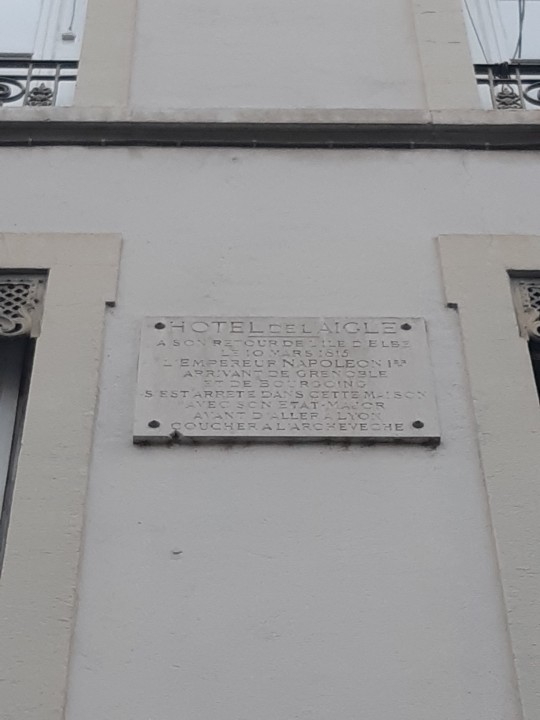

Plaque en hommage à : Napoléon Ier
Type : Lieu de résidence
Adresse : 107 Grande rue de la Guillotière, 69007 Lyon, France
Date de pose :
Texte : Hôtel de l'Aigle. A son retour de l'île d'Elbe le 10 mars 1815, l'empereur Napoléon Ier arrivant de Grenoble et de Bourgoing s'est arrêté dans cette maison avec son état-major avant d'aller à Lyon coucher à l'archevêché
Quelques précisions : Napoléon Bonaparte (1769-1821), également connu sous son nom d'empereur Napoléon Ier, est un homme d’État français et premier Empereur des Français de 1804 à 1814. Il est une figure majeure de l'histoire de France et a laissé une marque durable dans la société française dont l'héritage se perpétue encore aujourd'hui. Ayant pris part à la Révolution française, il prend le pouvoir à la suite du coup d’État du 18 Brumaire 1799, d'abord en tant que Premier Consul puis en tant qu'Empereur. Sous son autorité, la France est profondément réformée et atteint l'apogée de son emprise territoriale, en particulier grâce aux nombreuses victoires militaires remportées par Napoléon Ier contre les coalitions européennes. De nombreuses réformes napoléoniennes ont gardé un héritage jusqu'à l'époque moderne, comme la création des préfectures et du Conseil d’État, la mise en circulation du franc (qui ne sera abandonné qu'avec le passage à l'euro en 2002) et surtout la réalisation du premier Code civil (en 1804), lequel sera constamment réactualisé pour régir la vie administrative française. Toutefois, ses succès militaires se font de plus en plus rares, et à la suite de la prise de Paris en 1814, il est forcé d'abdiquer et est exilé sur l'île d'Elbe. Il en revient toutefois en 1815 et reprend le pouvoir pendant une période connue comme les Cent-Jours. Cependant, la défaite de Waterloo signera la fin définitive de ses ambitions. A nouveau exilé, cette fois-ci sur l'île de Sainte-Hélène, il meurt en 1821. Il laisse derrière lui un héritage considérable, qui nourrit tant une légende dorée (où il apparaît comme un homme providentiel et un commandant militaire hors pair) qu'une légende noire (qui le dépeint comme un tyran despotique et belliqueux) sur son compte et fait de lui un des personnages les plus importants de l'histoire de France, voire de l'Europe. De nombreux passages de sa vie ont été représentés ou adaptés dans des œuvres d'art, qu'il s'agisse de peintures, sculptures, livres, films ou jeux vidéo. Une autre plaque commémorative en son honneur peut être trouvée à Lyon, ville qu'il considéra pour la construction d'un nouveau palais impérial (qui ne sera jamais réalisé).
#individuel#hommes#residence#politiques#militaires#premier empire#france#rhone#lyon#napoleon bonaparte#napoleon i
2 notes
·
View notes
Text

⚜ State funeral of His Majesty Emperor Napoléon IV of Francesim ⚜
This is the official funeral process of His Majesty, Emperor Napoléon IV of Francesim. It is inspired by the funerals of the kings of France and the emperors of the French in the 19th century, all modernised. It is the first televised imperial and royal funeral of the Francesim.
Invitations to the event and the dress code will be distributed privately shortly. #funeralnapoléoniv

⚜ General chronology
23 Germinal: Vigil in front of the Tuileries Palace, open coffin, in the square courtyard of the Louvre Palace after the Pont des Arts in an ephemeral chapel.
24 Germinal: Departure of the imperial coffin from the Tuileries Palace. Crossing of Paris and arrival of the imperial coffin at the cathedral of Notre-Dame de Paris. Imperial mass given by the archbishop of Paris then opening of the access to the public.
From 24 Germinal to 29 Germinal: Vigil at Notre-Dame de Paris, open coffin. The imperial family collects the tributes paid to the Emperor Napoléon IV on the national territory.
29 Germinal: Arrival of foreign dignitaries in Paris. A minute's silence is observed throughout the country. Military parade given in honour of the Emperor Napoléon IV.
30 Germinal in the morning at 11 am: Crossing of Paris and arrival of the imperial coffin at the hotel of the Invalides under the blows of cannons and the sound of the funeral bells. The military procession is led by the new Emperor, himself preceded by the imperial family (apart from the widow, Madame Mère, Marie-Joséphine) and the princes of the Empire as well as the great French officers.
During this time, the foreign dignitaries take their places in the Hôtel des Invalides.
30 Germinal at 12 noon: Official state funeral.
At the end of the ceremony at about 3 p.m., the heralds will shout "The Emperor is dead!" and the whole of the Hôtel des Invalides and the whole of Francesim will shout "Long live the Emperor!" when the new Emperor leaves the chapel.
⚜ Official plaque on the coffin of Emperor Napoléon IV
Napoléon IV
Emperor of the French
Born in Brussels on 23 July 1970
Died in the Tuileries Palace
Paris
22 March 2022
R.I.P.
⚜ What next?
31 Germinal: In the evening, His Imperial Majesty will give a televised speech in tribute to His Majesty the late Emperor Napoléon IV and informs the new order of succession.
1 Floréal: The new Emperor of the French officially presents himself before Parliament. The Prime Minister will then give a speech in Parliament in the presence of His Imperial Majesty. The date of the coronation will be announced on this day.
2 Floréal: The heart of Emperor Napoleon IV, previously separated from the body of His Imperial Majesty, becomes a sacred Catholic relic, and is placed in its tomb (cardiotaph) in a chapel in the Hôtel des Invalides.
▬ Version Française ▬
Voici le déroulement officiel des funérailles de Sa Majesté, l'Empereur Napoléon IV de Francesim. Il est inspiré des funérailles des rois de France et des empereurs des Français du XIXe siècle, le tout modernisé. Il s'agit des premières funérailles impériales et royales télévisées de la Francesim.
Les invitations à l'événement et le dress code seront distribuées prochainement en privé.
⚜ Chronologie générale
23 Germinal : Veillée en face du palais des Tuileries, cercueil ouvert, dans la cour carrée du palais du Louvre après le Pont des Arts dans une chapelle éphémère.
24 Germinal : Départ du palais des Tuileries du cercueil impérial. Traversée de Paris et arrivée du cercueil impérial à la cathédrale Notre-Dame de Paris. Messe impériale donnée par l'archevêque de Paris puis ouverture de l'accès au public.
Du 24 Germinal au 29 Germinal : Veillée à Notre-Dame de Paris, cercueil ouvert. La famille impériale recueille les hommages rendus à l'Empereur Napoléon IV sur le territoire national.
29 Germinal : Arrivée des dignitaires étrangers à Paris. Une minute de silence sera observée dans tout le pays. Défilé militaire donné en l'honneur de l'Empereur Napoléon IV.
30 Germinal au matin à 11 heures : Traversée de Paris et arrivée du cercueil impérial à l'hôtel des Invalides sous les coups de canons et le son des cloches funèbres. Le cortège militaire est dirigé par le nouvel Empereur, lui-même précédé de la famille impériale (hormis la veuve, Madame Mère, Marie-Joséphine) et des princes de l'Empire ainsi que de grands officiers français.
Pendant ce temps, les dignitaires étrangers se placent dans l'hôtel des Invalides.
30 Germinal à 12 heures : Funérailles d'Etat officielles.
A la fin de la cérémonie vers 15 heures, les hérauts d'armes crieront "L'Empereur est mort !" et tout l'hôtel des Invalides et toute la Francesim clameront "Vive l'Empereur !" lorsque le nouvel Empereur quittera la chapelle.
⚜ Plaque officielle sur le cercueil de l'Empereur Napoléon IV
Napoléon IV
Empereur des Français
Né à Bruxelles le 23 juillet 1970
Mort au palais des Tuileries
Paris
le 22 mars 2022
R.I.P
⚜ Et après ?
31 Germinal : Le soir, Sa Majesté Impériale donnera un discours télévisé en hommage à feu Sa Majesté l'Empereur Napoléon IV et informe le nouvel ordre de succession.
1 Floréal : Le nouvel Empereur des Français se présente officiellement devant le Parlement. Le Premier Ministre donnera ensuite un discours au Parlement en présence de Sa Majesté Impériale. La date du couronnement sera renseignée durant cette journée.
2 Floréal : Le coeur de l'Empereur Napoléon IV, séparé au préalable du corps de feu Sa Majesté Impériale, devient une relique catholique sacrée, et rejoint son tombeau (cardiotaphe) dans une chapelle de l'hôtel des Invalides.
#simparte#gen 2#funeralnapoléoniv#sims 4#sims 4 fr#ts4#ts4 fr#ts4 royal#ts4 royalty#royal sims#sims 4 royal#sims 4 royalty
32 notes
·
View notes